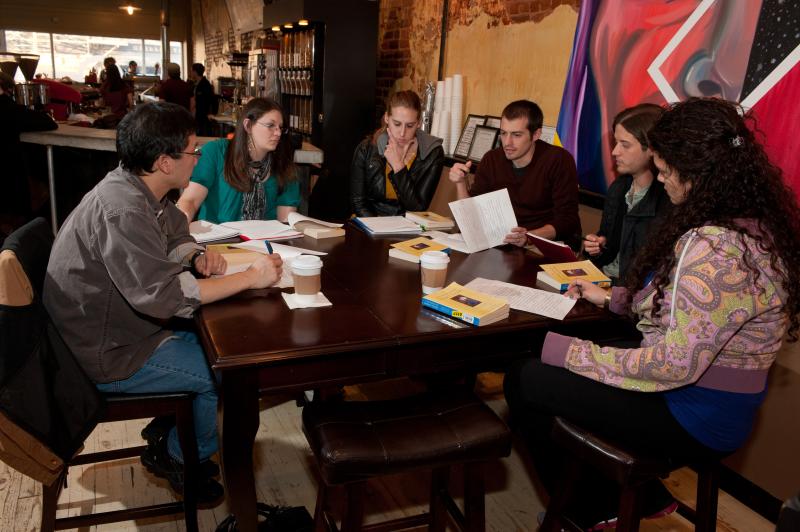by Erica Jacobs
Erica Jacobs teaches writing at George Mason University. She has a B.A., M.A., and Ph.D. from Columbia University and has published numerous articles in local newspapers, newsletters, and magazines.
When I received an invitation to apply to the Faculty Writing Retreat to take place during the 2014-2015 winter break, I recognized I couldn’t let the opportunity pass. It was a similar retreat sponsored by the English Department in 1978 that permanently changed my writing and teaching. That was near the beginning of my career, and 37 years later—near the end—it was time to take the body of work I’d written over the years for local newspapers and see if it would be publishable as a collection.
Between the mid-1980s and 2011, I’d written more than 400 education columns for the Fairfax Journal and The Examiner newspapers. They mostly focused on my Fairfax County high school classroom, but some were about my teaching at George Mason University or larger educational issues like curriculum and school lunches. I needed to pick the best to see if a publisher might be interested in these “slice of life” looks at education over 25 years, and knew the writing retreat would be the perfect place to focus and workshop this collection.
25 of us gathered for two days in the Johnson Center to share goals, talk about our writing process, and write. Representatives from Writing Across the Curriculum and the Center for Teaching and Faculty Excellence helped facilitate the four groups, and met with us to share progress reports. Three of the four groups had the primary goal to “shut up and write”; one group workshopped papers and had discussion. In my group we also shared goals at the beginning of each day, and what we’d accomplished by day’s end. These brief sharing sessions showed us that we were not the only ones whose goals had shifted slightly once we started working, or who accomplished something other than what we’d originally intended. The retreat more than 30 years ago (at the dawn of the Writing Across the Curriculum movement) had a more reading/writing group setup: we wrote, read aloud to one another, and made suggestions. This time, participants had their goals mapped out beforehand, and the majority of the time was spent in a silent room conducive to writing.
For my project, I sifted through hundreds of articles—some I’d completely forgotten—and kept a running list of those that might appeal to parents and educators. I wrote a query letter. Others reported making similar progress on their own projects. For all of us, the retreat provided the motivation and atmosphere that made production much easier than the distractions of working at home.
Now, my next step is to figure out where to send the query letter. Oddly enough, there are very few book-length anecdotal accounts of the classroom, and it will not be easy to find interested publishers. Most published teacher accounts focus on curricular reforms or teacher research. My project will be a hard sell. (No one ever claimed that writing for publication was an easy or direct path!) I am encouraged by my enthusiastic readers over the years, who have repeatedly suggested I collect my columns for publication. I still have hurdles to jump, but the 2015 Writing Retreat certainly got me a lot closer to my goal than I was the week before we met.
Editor’s Note: Check back next week for a full discussion of the data related to overall participant experience at the retreat, so that you might consider attending the next retreat or planning one at your own institution.

